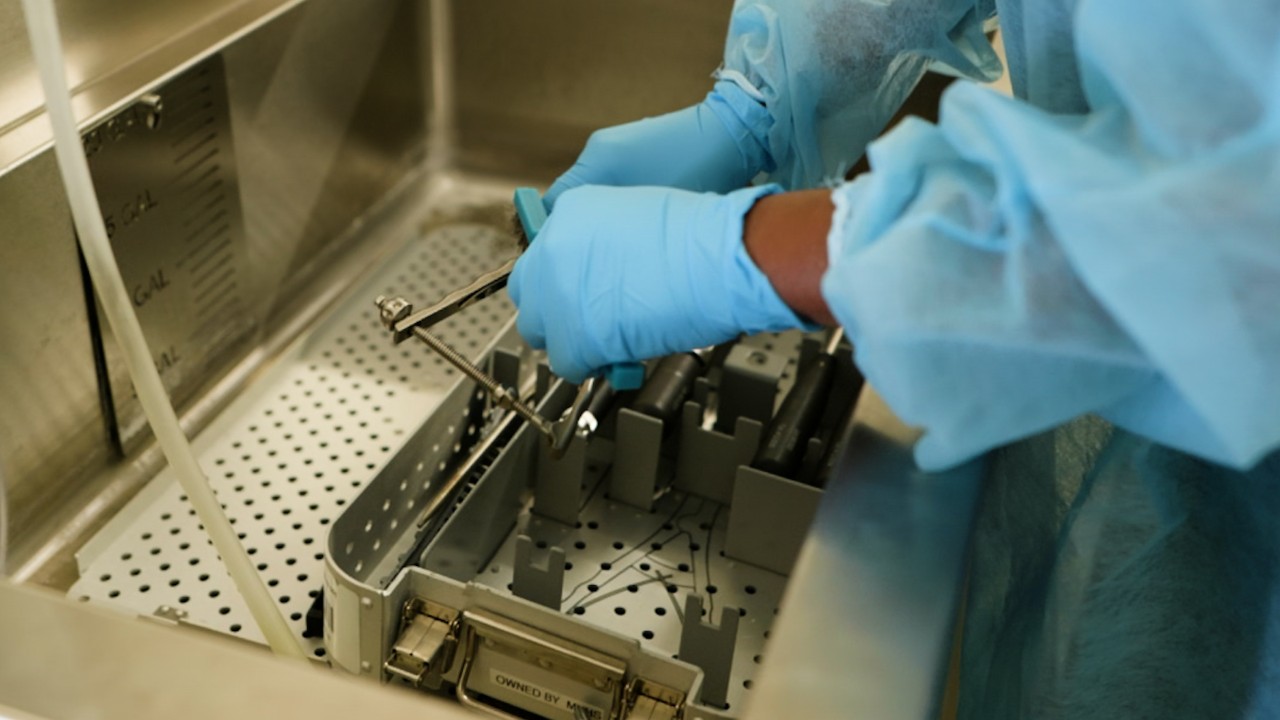The healthcare sector continues to expand, with strong growth projected for allied health jobs. Jobs for healthcare professionals will increase 23% from 2021 to 2036, according to projections from the U.S. Health Resources and Services Administration. That means many opportunities are likely to be available for trained medical professionals like sterile processing technicians.
Infection risk is a major concern for hospitals and other healthcare facilities. Maintaining sterile environments protects patients and healthcare providers. The role of a sterile processing technician is to make sure that surgical instruments are properly sterilized so they cannot spread infections.
Medical equipment preparers in Texas are expected to see significant job growth in the coming years, according to O-Net Online. Individuals can train to enter this growing healthcare field by attending a sterile processing technician school in Houston. But what skills are taught to students at sterile processing technician school? And how long does it take to complete a sterile processing technician program?
What Is Sterile Processing Technician School?
Sterile processing technicians are critical members of a healthcare team. They sterilize medical instruments, prevent contamination in laboratory and hospital settings, and transfer surgical instruments safely. Sterile processing technicians help hospitals, labs, doctor’s offices, and clinics minimize surgical site infections and keep patients safe.
In a sterile processing technician program, students study microbiology and infection control. Experienced instructors share their knowledge and skills with students on topics such as surgical site infections and the best methods for sterilizing medical instruments, preparing students for in-demand roles in hospitals and other healthcare settings.
While many healthcare programs require years of study, students can complete a sterile processing technician training program in less than a year.
Sterile Processing Technician School: Length and Requirements
Becoming a sterile processing technician requires completing focused coursework and gaining hands-on experience. While the exact graduation requirements and timeline depend on the program, some aspects of sterile processing technician school are universal.
Applying to Sterile Processing Technician School
Prospective students need to meet admission requirements to enroll in a sterile processing technician school. While some healthcare programs have extensive admission requirements, sterile processing technician training programs are accessible to many individuals.
Admission requirements vary by school, but most programs require a high school diploma or the equivalent. Many schools administer an aptitude test such as the Wonderlic SLE to prospective students to assess their ability to be successful in the program. Admissions advisers can provide more information about their school’s specific admission requirements.
Requirements for a Sterile Processing Technician Diploma
All healthcare jobs require specialized training. In a sterile processing technician training program, students learn about different medical instruments and the methods for properly cleaning and storing them. They also learn how to transfer medical instruments. Sterile processing technician programs emphasize evidence-based methods for cleaning and sterilizing equipment, with an emphasis on infection control.
Sterile processing technician training programs incorporate traditional classroom instruction, hands-on skill development, and real-world experience in lab and hospital settings. By emphasizing practical applications, these programs prepare students to join the workforce immediately after completing the program.
Timeline for Sterile Processing Technician Schools in Houston
How long sterile processing technician school takes can vary by program. Some programs take as little as three months to complete, while others take up to two years to earn a degree. While some sterile processing technician schools award a focused diploma, others award an associate degree, which typically requires two years for full-time students to complete. Diploma programs help graduates enter the workforce faster, which is why many prefer this option when considering the field.
After completing a sterile processing technician training program, graduates qualify for entry-level roles in hospitals, doctor’s offices, diagnostic centers, inpatient and outpatient clinics, and other healthcare facilities.
Benefits of Attending Sterile Processing Technician School in Houston
Sterile processing technician schools provide career-focused training on an accelerated timeline. As a result, graduates can enter the booming healthcare sector relatively quickly.
Houston is home to major hospitals, including the University of Texas Medical Branch, Houston Methodist Hospital, and Texas Children’s Hospital. These hospitals hire sterile processing technicians to maintain infection control standards and keep patients safe. Outside of Houston’s major hospital systems, sterile processing technicians also work in doctor’s offices, diagnostic laboratories, and other settings that rely on infection control specialists.
Sterile processing technicians in Houston benefit from a strong job market. Workers in Texas are expected to see significantly higher job growth than the national average in the coming years. Nationally, the U.S. Bureau of Labor Statistics projects 5% overall job growth from 2022 to 2032. However, O-Net Online projects there will be 18% overall job growth in Texas from 2020 to 2030. This indicates there could be many opportunities for graduates of sterile processing technician schools in Houston.
Enroll in the Sterile Processing Technician School at Fortis
Want to become a sterile processing technician in the Houston area? The Fortis College Houston South campus and the Fortis Institute Houston North campus offer sterile processing technician training programs that prepare students for in-demand jobs and certification as a central sterile processing technician.
At Fortis, students learn how to properly clean, transfer, and store medical instruments to avoid contamination. They also study infection control procedures in the classroom and in lab environments. The program’s emphasis on hands-on, real-world experience helps graduates land jobs in hospitals, clinics, and other healthcare settings.
Contact Fortis today to learn more about the sterile processing technician training program.
Recommended Readings
7 Essential Sterile Processing Technician Skills
How to Become a Sterile Processing Technician
The Role of a Sterile Processing Technician


